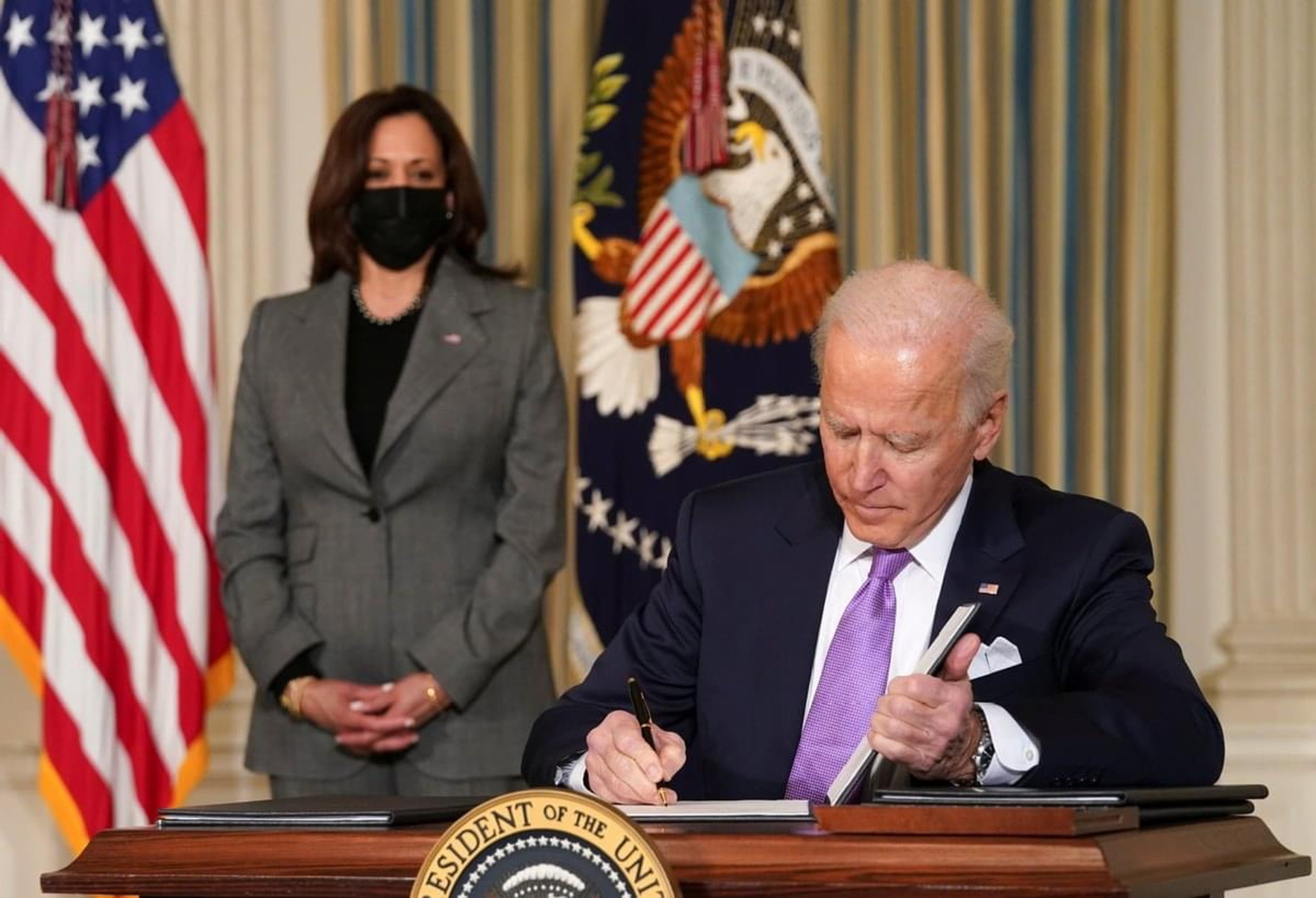Posts tagged Department of Commerce
OMB delays firing federal workers to comply with court order
October 18, 2025 // The unions and other opponents of the reductions say the firings are a significant departure from the norm in a shutdown and are not the type of work agencies can undertake during a shutdown. Previous shutdowns, including during President Donald Trump’s first term, did not result in any reductions in force. In all other shutdowns, federal workers who are classified as “excepted” employees remained on the job while all others were furloughed, and all received back pay after the government reopened.
President Trump Takes Real Action to Promote Jobs in the Skilled Trades
May 11, 2025 // President Trump has directed the Departments of Education, Labor, and Commerce to develop a plan to surpass one million new active registered apprentices. Agency heads are directed to identify opportunities to expand registered apprenticeships in new industries and to prioritize program efficiency and consistency. Agency heads are further directed to identity opportunities to enhance connections between America’s colleges and universities and apprenticeship programs through federal career and technical education (Perkins V) grants and student aid.
Court Rules Trump Move Ending Federal Worker Union Contracts Is ‘Unlawful’
April 27, 2025 // While preliminary, the injunction is significant because it could help to maintain worker protections enshrined in the contracts and enable covered workers to file grievances via processes laid out in them. Most of the nation’s more than two million federal employees are represented by unions. The ruling could also lead to the restoration of dues collection from members, which the NTEU says bring in $25 million annually. That is because follow-up guidance on Trump’s original executive order from the Office of Personnel Management stated that agency resources “should not be expended to facilitate payment of union dues.” Labor groups have filed dozens of legal challenges to Trump’s executive orders, which have led to pauses in firings of some federal workers who lost their jobs as part of the administration’s efforts to reduce government bloat.

Op-ed: With fewer workers choosing unions, administration turns to taxpayer dollars to boost union ranks
September 19, 2023 // First, some solicitations for grants, such as under the Environmental Protection Agency’s “Clean School Bus” program, ask whether applicants will recognize card check certifications. Card check is a process where workers are denied the chance to vote for or against a union by private ballot. Instead, union organizers are allowed to repeatedly pressure them to sign cards, in public. Both the text of the National Labor Relations Act and numerous court rulings (including by the Supreme Court) have recognized that private ballots are far superior to signature cards in determining workers’ true feelings about unionizing. Apparently, the administration thinks “free and fair” means a free and fair chance for organizers to pressure workers into saying “yes.” Second, many grant solicitations, such as those under the Department of Energy’s “Home Energy Efficiency Contractor Training,” “encourage” applicants to remain neutral in organizing campaigns. What this means is that employers are being asked to waive their statutory right to discuss the potential negatives of unionizing with workers. Instead, workers will get just one side of the story — that of the union. With no other source of information, workers might just decide to say yes, especially when being pressured to sign a card. Third, some applications, such as those published by the National Telecommunications and Information Agency to build broadband, ask applicants to sign labor peace agreements. Labor peace certainly sounds desirable, but here’s what it means in practice. Let’s say a union decides it wants to represent the workers of a particular grantee. Upon notice of that intent, the grantee would have to get the union to sign a labor peace agreement, which typically includes a “no-strike” pledge among other provisions. The catch is that if the union doesn’t sign, you don’t get your grant. This gives the union tremendous leverage to demand organizing concessions, most notably things like card check and neutrality.
Federal Employee Union Membership is Up 20%
March 29, 2023 // The task force asked federal agencies to foster collaborative relationships with their union partners, involve labor organizations in predecisional policy discussions, and remove barriers from unions trying to increase their membership or organize new bargaining units. The group recommended that the Office of Personnel Management instruct agencies to provide information on whether job openings are represented by unions and encourage agencies to provide unions more opportunities to communicate with new hires. In a blog post last week, the vice president’s office announced that just a year after agencies began implementing the task force’s recommendations, the initiative is already paying dividends: over the last year, nearly 80,000 federal employees have joined a union, increasing the total number of dues paying union members at federal agencies by 20%. And in the private sector, petitions for union representation increased 53% from fiscal 2021 to fiscal 2022, while overall union membership grew by 273,000 last year.
Chip makers must provide child care plan for fund access
February 28, 2023 // The agency is agnostic on how companies get this done. They could build company-run onsite facilities, or outsource to a vendor. Companies could sponsor care directly or provide vouchers, discounts or cash. They'd need to understand what kind of care is actually available in the region, amid a nationwide shortage with a lot of regional variation. The need for these plans runs along supply and demand lines. In many areas there aren't enough child care workers or facilities, and costs are unaffordable for people who might want to take these chip-related jobs. In some regions, care for one child costs 14-18% of a construction workers' gross wages, the presentation says.

Biden task force releases report to strengthen labor unions
February 8, 2022 // “Today’s report from the White House task force is nothing more than pro-union propaganda and exemplifies how entrenched pro-union allies are in this administration," said Kristen Swearingen, chair of the Coalition for a Democratic Workplace, which is composed of more than 500 business groups including the U.S. Chamber of Commerce and the American Trucking Association.
Jobs recovery far more rapid in right-to-work states
February 8, 2022 // "because federal labor law is the source of private-sector forced union dues and fees, Congress has the authority and the responsibility to fix the problem. To ensure post-COVID-19 recovery for employees, Congress should pass the National Right to Work Act."
